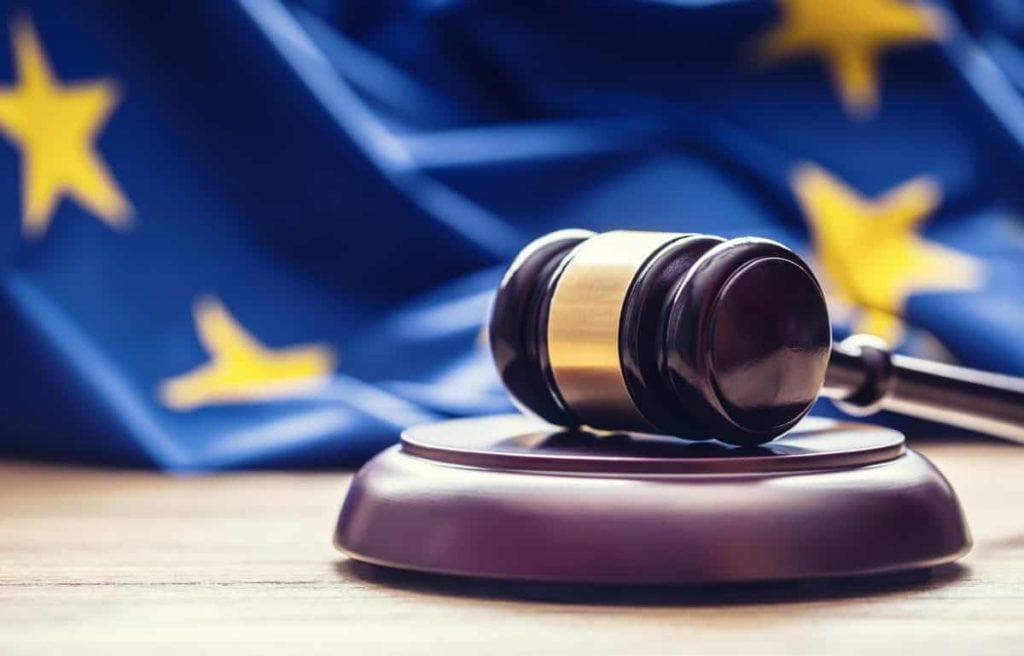
Judges wooden gavel with EU flag in the background. Symbol for jurisdiction.
Last week, the New York Post reported that “DOGEQUEST,” an anonymous website, had published a partial list of Tesla owners’ names, addresses, and phone numbers. The site, since deleted, featured a Molotov cocktail image as a cursor, and a map of supposed Tesla owners and “DOGE landmarks.”
Tesla CEO Elon Musk described the doxxing site as an example of “extreme domestic terrorism;” the White House agreed. In the Department of Justice’s press release announcing charges against three suspected Tesla arsonists, Attorney General Pam Bondi warned would-be criminals, “if you join this wave of domestic terrorism against Tesla properties, the Department of Justice will put you behind bars.”
Finally, a reason to check your email.
Sign up for our free newsletter today.
Musk and the White House agree that those targeting Tesla are committing domestic terrorism. And to most normal people that seems obvious. But with its intricacies, federal terrorism law may not be the best tool to hold them accountable. Instead, states should take the lead and enforce their own laws against the Tesla arsonists.
The DOJ has so far indicted three suspects for destroying, or trying to destroy, Tesla property. Each faces arson-related charges and is accused of using Molotov cocktails in the commission of his crime.
The three alleged crimes were connected with a coordinated campaign against Musk and Tesla. In February, The Hill reported that “Democratic activists” were “planning a protest campaign” against Musk, which would be held “outside offices of lawmakers and Tesla dealerships.” One element of this effort was the “Tesla Takedown,” a nominally “peaceful protest” against “Musk’s illegal coup.” The Takedown was co-sponsored by the Troublemakers, a Seattle-based “community” focused on “direct action,” and The Disruption Project, a group “dedicated to supporting uprisings, resistance and mass direct action.”
This campaign may have contributed to the three criminal incidents charged by DOJ. But are these crimes domestic terrorism, as defined under federal law?
On the one hand, the statutory definition of domestic terrorism seems to say so:
activities that— (A) involve acts dangerous to human life that are a violation of the criminal laws of the United States or of any State; (B) appear to be intended— (i) to intimidate or coerce a civilian population; (ii) to influence the policy of a government by intimidation or coercion; or (iii) to affect the conduct of a government by mass destruction, assassination, or kidnapping; and (C) occur primarily within the territorial jurisdiction of the United States.
Since federal law defines a Molotov cocktail as a weapon of mass destruction, the case for the defendants’ actions meeting this definition seems relatively straightforward. Progressives will claim that setting fire to an unoccupied vehicle is not “dangerous to human life.” But the DOJ could reasonably argue that carrying and throwing firebombs imperils people’s lives.
Read more HERE.
- Anarchists call for solidifying gains, expanding violent insurgency - February 5, 2026
- Shideler: Resistance to Immigration Enforcement Is Fierce in Minnesota - February 2, 2026
- The Revolution Is On in Minnesota - January 26, 2026
